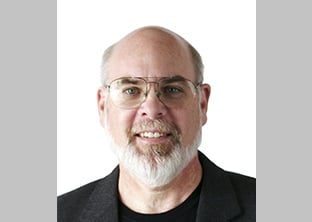Imagine a unified insurance policy for a life, motor, home, liability, and disability, all tied under a single underwriting process. Sound farfetched? One expert believes that advances in insurtech, such as cloud computing, make the concept of macroinsurance more feasible.
Mark Breading, a partner at Boston-based insurance advisory firm Strategy Meets Action (SMA), describes macroinsurance as flipping the insurance model around and applying a more holistic approach that simplifies insurance for the consumer.
“Macroinsurance is a true customer-oriented approach to insurance,” Breading tells
Insurance Business. “Rather than starting from the insurance company view, with products organized by line of business, macroinsurance looks at risks from the customer perspective.
“In theory, the customer would have one payment, one summary statement, and one company to deal with, although there will still be individual detailed policies backing the product.”
As with every emerging concept in an established industry, there are concerns about the disruption macroinsurance could bring, and whether it can be accommodated by the insurance system. Macroinsurance, as it stands, is in its infancy and remains more largely theoretical. But it is, nevertheless, worth examining the potential knock-on effects for brokers or managing general agents.
Breading believes that the emergence of macroinsurance will encourage distributors to expand their area of expertise.
“The most likely scenario is that managing general agents or other distribution entities will offer the product and partner with insurance carriers in the background,” Breading says. “The fronting party will manage the customer relationship, while the insurer will hold the risk and provide certain services (such as claims management). This means that distributors that are involved in macroinsurance products must have expertise across the different insurance areas, such as home, motor, liability, cyber, and life and health.”
Meanwhile, on the regulatory side, Breading predicts there will not be much trouble for regulators to accept and regulate macroinsurance. However, regulatory agencies, as part of their mission to protect consumers, will necessarily scrutinise the packaging, pricing, and language of any macroinsurance policies that will be released, he says.
In the face of emerging concepts like macroinsurance, Breading advises insurance professionals to be more open to the convergence of both old and new insurance methods.
“We believe there is great opportunity for the industry to bring together the existing capabilities of the traditional industry with the new ideas, technologies, and insurtechs to build a stronger industry,” he says.
“Our main advice to insurance professionals: rather than fretting about disruption, seek out the opportunities and actively pursue innovation.”
Related stories:
Going digital means going all the way
Insurance industry still not fully adapted to disruption
‘Exponential change’ to impact the industry


